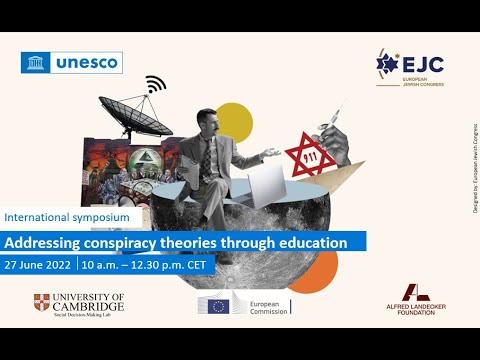
The United Nations and #ThinkBeforeSharing – Guardians of the Truth and Destroyers of Conspiracy Theories
The United Nations through its agency, UNESCO which, ironically has the mantra “Building peace in the minds of men and women” has anointed itself as the great protector of the narrative through its new “#ThinkBeforeSharing” campaign. Let’s look at how the future global government sees its role in the new, disinformation-free world.
Here is the UNESCO’s #ThinkBeforeSharing start webpage:
UNESCO claims the following with my bold:
“The COVID-19 pandemic has sparked a worrying rise in disinformation and conspiracy theories. Conspiracy theories can be dangerous: they often target and discriminate against vulnerable groups, ignore scientific evidence and polarize society with serious consequences. This needs to stop.“
Those are big words from an agency that is relatively meaningless in the grand scheme of things…at least until the United Nations takes over as the world’s sole government (another conspiracy theory unless you dig a bit below the surface?).
UNESCO’s Director-General, Audrey Azoulay:
…who has this background:
…has this to say about “conspiracy theories”:
“Conspiracy theories cause real harm to people, to their health, and also to their physical safety. They amplify and legitimize misconceptions about the pandemic, and reinforce stereotypes which can fuel violence and violent extremist ideologies.“
The “#ThinkBeforeSharing” campaign is being implemented jointly with the European Commission, Twitter and the World Jewish Congress. The purpose of the campaign is as follows:
“A new campaign helps you learn how to identify, debunk, react to and report on conspiracy theories to prevent their spread. Check out the infographics and social media pack below and help spread the word that facts matter and no one is to blame. Thinking critically and being informed about conspiracy theories is key to challenging them.“
I like the part about “thinking critically” which, is in fact, what the campaign does NOT want us to do, rather, it prefer that we just accept its definition of conspiracy theories rather than using our own minds to distinguish truth from disinformation, no matter the source.
UNESCO is so kind as to provide us with several infographic pertinent to the “ThinkBeforeSharing “. A line in the first one caught my attention because it seems very self-serving given that the United Nations is behind the campaign:
Here’s the key line which defines conspiracy theories according to UNESCO and its partners:
“The belief that events are secretly manipulated behind the scenes by powerful forces with negative intent.“
One word – irony.
Here’s another infographic which will help the intellectually challenged serf class to determine what is and what is not a conspiracy theory:
Here’s an infographic showing how conspiracy theories are dangerous:
Apparently conspiracy theories can result in “mistrust of public institutions which can lead to political apathy or radicalization”. Of course, this mistrust wouldn’t be in anyway created by the kakistocratic nature of the political class in today’s world, would it?
Here is an infographic showing the link between conspiracy theories and antisemitism which explains the participation of the World Jewish Congress in this campaign:
Noting the mention of George Soros, it would be interesting to know how much he has invested in this campaign. It also bears noting that Audrey Azoulay, the Director-General of UNESCO, was born into a Moroccan Jewish family.
While there are additional infographics, the subject matter of this one caught my attention:
You’ve got to feel sorry for those poor folks caught in a spiderweb of conspiracy theories.
Let’s close this posting with one thought that some of have learned over the past two and a half years:
“The difference between conspiracy theories and reality is about six months.“
Perhaps if governments spent less time and energy by repeatedly lying to and trying to hide things from voters, the formation of conspiracy theories would subside.
If you have a couple of hours to spare and you wish to learn more about the “#ThinkBeforeSharing” campaign and how conspiracy theories can be addressed though education, you might want to watch this video of a symposium held on June 27, 2022 regarding the issue:

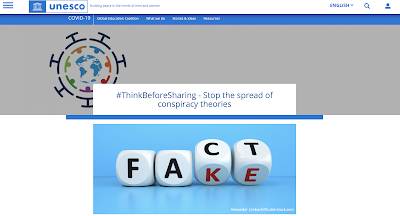
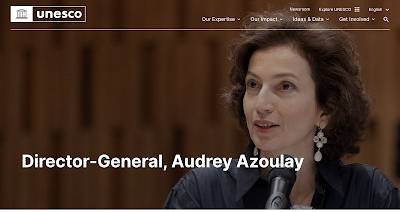
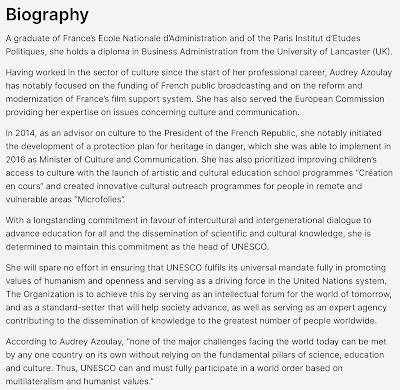
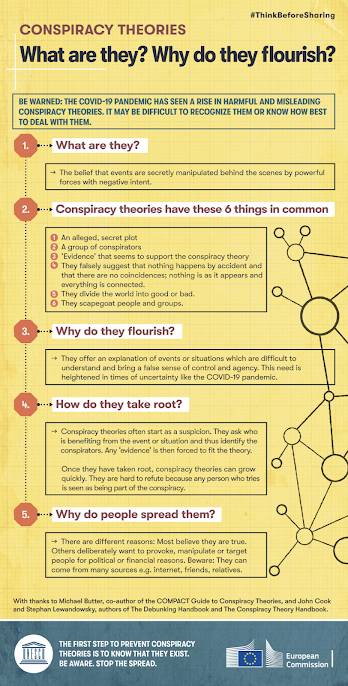
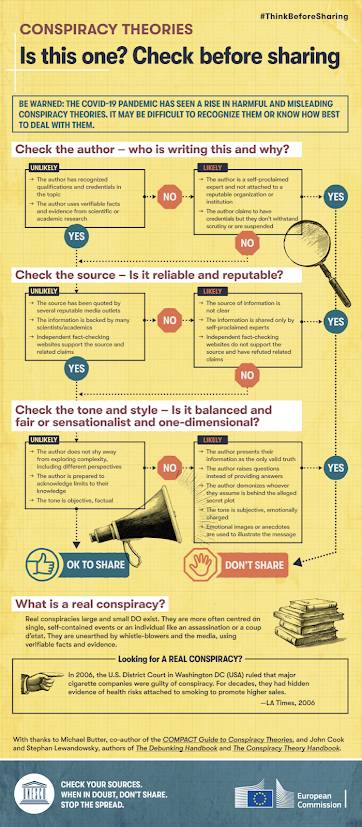
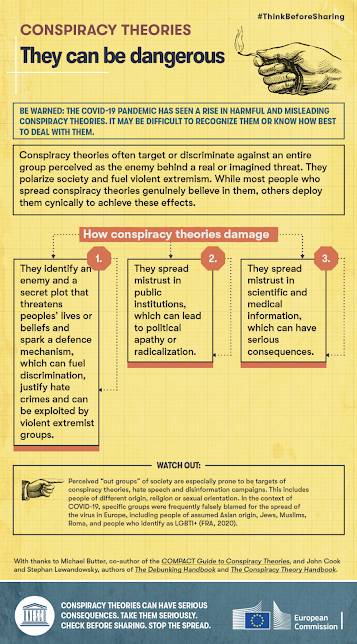
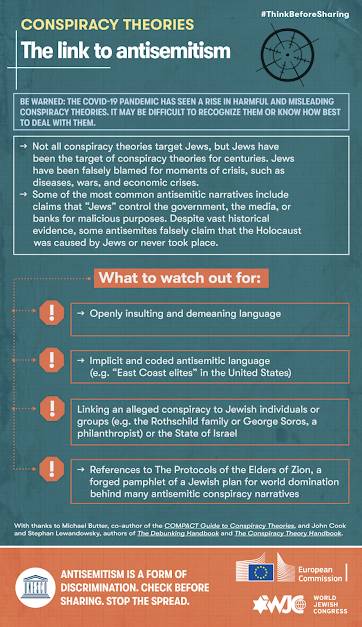
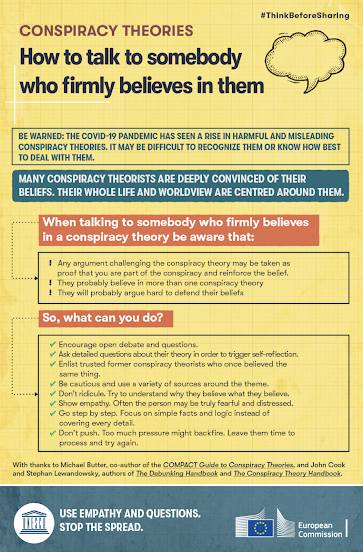
Be the first to comment